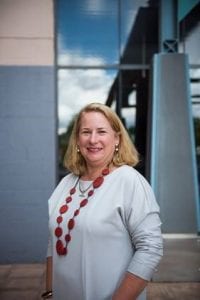Jack Makeham Memorial Lecture – 2018
“Towards 2050 – Where to for Agriculture?”
AARES New England Branch and UNE Business School welcome
Ms. Kate Lorimer-Ward
(Deputy Director General, DPI Agriculture with NSW Department of Primary Industries)
Many sectors, cities and countries are planning forwards to 2050. What will Agriculture look like in 2050? We are amidst a period of unprecedented change. As climatic shifts disrupt traditional agricultural industries, conflicts increase around access to natural resources, and demand for quality proteins expands, a confluence of pressures is emerging which is set to significantly affect Australia’s rural industries. The expanding global population, predicted to reach almost 10 billion by 2050, will put pressure on the global food system, reshaping the nature of agricultural production and provision. The rise of Asia’s economy, increasing globalisation, significant digital disruptions and an ageing population will accelerate the creation of new and innovative systems to meet global demand. Rapid changes throughout NSW and Australia will be driven by the need for rural industries to remain resilient, competitive and profitable in the face of an agricultural revolution. On the one hand, 2050 is so far in the future it seems difficult to plan for amidst such unprecedented change – however, if we fail to plan now, we may not optimise our opportunities in 2050. As the world becomes choosier, riskier, hungrier, wealthier, more individualised, and more technology-driven, we must challenge current insights and unlock opportunities to ensure the agricultural sector continues to thrive. If you are a young farmer entering agriculture in 2018, then 2050 is within your business lifetime. In a sector that is capitalandasset intensive, and dependent on biological systems, we must plan now for where we need to be. In the face of so many unknowns now is the time to be visionary and challenge what this future may look like. This lecture will explore some of the principles that may underpin a 2050 vision for the sector. It is when we understand that vision can we start to unpack what will be involved in getting there.
When: Thursday 20 September 2018 – Lecture commences at 2.00pm, join us before the event for an informal lunch.
Where: JP Belshaw Lecture Theatre (LT1), UNE Business School (EBL Building, W40)
For students – if you’re interested in an opportunity for some one-on-one conversation time with our guest, email Derek Baker (abaker33@une.edu.au) to take advantage of this opportunity.
 Ms. Kate Lorimer-Ward is the Deputy Director General, Agriculture, NSW Department of Primary Industries (DPI) and Chief Executive of the NSW Rural Assistance Authority. This role is responsible for developing DPI’s industry focus on increasing productivity and resilience driven by research and development, workforce capacity building and business and social resilience programs. Kate is a committed senior executive within the NSW public service who continually seeks to deliver value to the communities that she serves. She is BA (USyd), Grad Cert Climate Change (UMelb) and Executive Masters Public Admin (USyd) MAICD. Kate has worked across a diverse range of portfolios with extensive management experience, and has a real passion for the agricultural sector, founded in more than 20 years’ experience in the public sector in rural and regional NSW. Kate holds a personal focus and desire to service the rural, regional and remote communities within NSW, through creative leadership, innovative program creation, design and implementation. Kate is also a partner in a farming enterprise near Orange, a member of the Institute of Company Directors, a Director on the Board for the CRC for High Performing Soils and a Trustee for the Belgenny Trust.
Ms. Kate Lorimer-Ward is the Deputy Director General, Agriculture, NSW Department of Primary Industries (DPI) and Chief Executive of the NSW Rural Assistance Authority. This role is responsible for developing DPI’s industry focus on increasing productivity and resilience driven by research and development, workforce capacity building and business and social resilience programs. Kate is a committed senior executive within the NSW public service who continually seeks to deliver value to the communities that she serves. She is BA (USyd), Grad Cert Climate Change (UMelb) and Executive Masters Public Admin (USyd) MAICD. Kate has worked across a diverse range of portfolios with extensive management experience, and has a real passion for the agricultural sector, founded in more than 20 years’ experience in the public sector in rural and regional NSW. Kate holds a personal focus and desire to service the rural, regional and remote communities within NSW, through creative leadership, innovative program creation, design and implementation. Kate is also a partner in a farming enterprise near Orange, a member of the Institute of Company Directors, a Director on the Board for the CRC for High Performing Soils and a Trustee for the Belgenny Trust.
Jack Makeham
John (Jack) Patrick Makeham was one of Australia’s most colourful agricultural economists, dominating Australian farm management from the 1950s to the 1990s. Following war service, Jack obtained an honours degree in agricultural science from The University of Melbourne. He initially worked for the Victorian Department of Agriculture, before establishing one of Australia’s first agricultural consulting practices. Jack came to UNE in 1967, and for the next 30 years made a significant contribution to the training of agricultural economists in the areas of farm management and agricultural extension. Jack is especially remembered for his ten books on farm management, which have become enduring classics. All over the world there are farmers and students whose lives have been deeply enriched and vastly improved by knowing Jack Makeham. (Source: Malcolm and Piggott, Australian Journal of Agricultural Economics, 1996, 40:3)



Hi,
I am an external student and was wondering if this lecture will be available for us to attend online?
Thanks
Jarrad
Hi Jarrad,
You can view the recording of this seminar, as well as links to previous seminar recordings, via this link: http://www.une.edu.au/about-une/faculty-of-science-agriculture-business-and-law/unebs/research/seminar-series/une-business-school-seminars-2018
Please let us know if you have any trouble at all accessing these!
Kind regards,
Becky Amon
UNE Business School